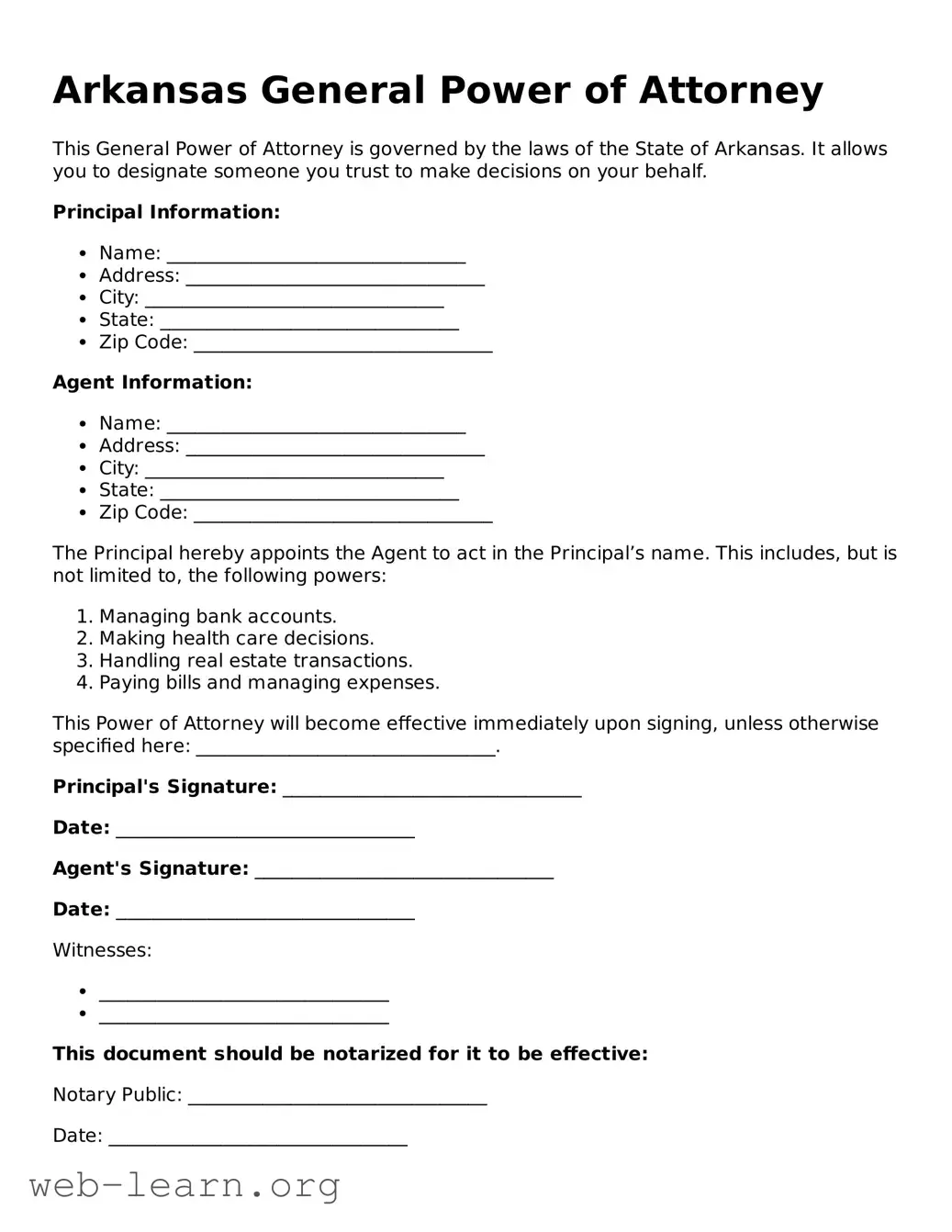Arkansas General Power of Attorney
This General Power of Attorney is governed by the laws of the State of Arkansas. It allows you to designate someone you trust to make decisions on your behalf.
Principal Information:
- Name: ________________________________
- Address: ________________________________
- City: ________________________________
- State: ________________________________
- Zip Code: ________________________________
Agent Information:
- Name: ________________________________
- Address: ________________________________
- City: ________________________________
- State: ________________________________
- Zip Code: ________________________________
The Principal hereby appoints the Agent to act in the Principal’s name. This includes, but is not limited to, the following powers:
- Managing bank accounts.
- Making health care decisions.
- Handling real estate transactions.
- Paying bills and managing expenses.
This Power of Attorney will become effective immediately upon signing, unless otherwise specified here: ________________________________.
Principal's Signature: ________________________________
Date: ________________________________
Agent's Signature: ________________________________
Date: ________________________________
Witnesses:
- _______________________________
- _______________________________
This document should be notarized for it to be effective:
Notary Public: ________________________________
Date: ________________________________
